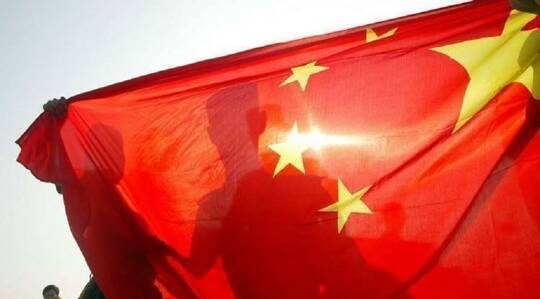Chinese Foreign Minister Wang Yi begins a six-country tour of the Middle East this week. According to a statement from the Foreign Ministry, Wang “will pay official visits to Saudi Arabia, Turkey, Iran, United Arab Emirates and Bahrain, and a working visit to Oman from March 24 to 30.” Further rounding out China’s Middle East diplomacy, Wang spoke with the foreign ministers of Iraq and Jordan on the phone on March 13.
China’s interest in the Middle East has historically been based almost entirely on energy, and really just oil. In 2019 (allowing us to overlook the disruptions of the pandemic), six of China’s top 10 sources of oil imports were Middle Eastern countries, with Saudi Arabia topping the list. But in recent years, China’s relationships in the region have greatly expanded, to include not only alternative sources of energy, from renewables to natural gas, but other sectors, like financial cooperation and now even vaccine diplomacy.
“State Councilor and Foreign Minister Wang Yi’s visit to the Middle East demonstrates the importance China attaches to its relations with countries in this region and China’s sincerity in deepening mutually beneficial cooperation,” in the words of Chinese Foreign Ministry spokesperson Hua Chunying. During the visit, Wang and his counterparts will discuss regional affairs and strategic issues, the Belt and Road Initiative, pandemic responses, and the post-COVID economic recovery, as well as “promot[ing] synergy between the building of new development paradigm in China and major development strategies in those countries.”
While in Iran, Wang will doubtless discuss the future of the nuclear agreement, formally known as the Joint Comprehensive Plan of Action (JCPOA). The Trump administration withdrew the United States from the deal in 2018 and Iran has ceased honoring its commitments as a result. China has been urging a return to the deal, while making it clear that Washington bears the lion’s share of the burden. “The Iranian nuclear issue is now at a critical juncture,” Hua said on March 23. “The immediate priority is for the U.S. to return to the JCPOA and lift sanctions at an early date, while Iran resumes compliance reciprocally in order to jointly push the JCPOA back on track.”
All six countries Wang will visit over the next week have signed on to China’s Belt and Road Initiative, along with Iraq, Kuwait, Lebanon, Qatar, and Yemen. The major exceptions in the region are Israel and Jordan, neither of which has inked a formal agreement on the BRI.
China has long avoided taking sides in the many-sided conflicts in the Middle East. Just look at Wang’s itinerary, which pointedly includes competing powers Saudi Arabia, Turkey, and Iran. That said, recently Beijing has put a particular emphasis on cultivating relations with the Arab states. Wang declared that “Sino-Arab political relations have opened a new chapter” at his annual press conference during the “Two Sessions” this month. “China remains the largest trading partner of Arab states. Key projects of Belt and Road cooperation are being resumed in an orderly way. Cooperation in high and new technologies such as 5G, artificial intelligence, aviation and aerospace is thriving. Sino-Arab practical cooperation has reached a new height.”
The two sides are working on arranging the next edition of the triennial China-Arab summit, as agreed to at the ministerial meeting of the China-Arab States Cooperation Forum last year. The summit is due to be hosted in the Middle East this time, which would presumably bring Chinese President Xi Jinping to the region for the first time since 2018. China is also hoping to push forward talks on a free trade agreement with the Gulf Cooperation Council, as discussed during a January 31 phone call between Wang and Saudi Foreign Minister Faisal bin Farhan Al Saud.
However, even as potential friction points accumulate between the United States and its regional partners, analysts like Guy Burton argue that fears of China supplanting the U.S. in the Middle East “are overblown.” As Burton told The Diplomat’s Mercy Kuo in a previous interview, “Since Obama, U.S. policymakers have feared that pulling out of the Middle East and pivoting to East Asia would leave the former space open to China. But there’s little sign that will happen.”
China and Middle Eastern governments are also finding common cause amid more vocal objections to human rights concerns under the Biden administration. For example, on January 31 Wang told Faisal, for example, China “supports Saudi Arabia’s efforts to maintain security and stability, and opposes external interference, unilateral bullying and terrorism.” Meanwhile, in a phone call with Faisal on March 22, U.S. Secretary of State Antony Blinken “underscored the importance of continued progress on human rights” in Saudi Arabia. He also repeated U.S. calls for a ceasefire in Yemen, where the United States has been supporting Saudi attacks on the Houthi rebels. The Biden administration is increasingly uncomfortable for the massive humanitarian toll taken by the conflict and recently ended support for Saudi Arabia’s offensive operations in Yemen.


























































































